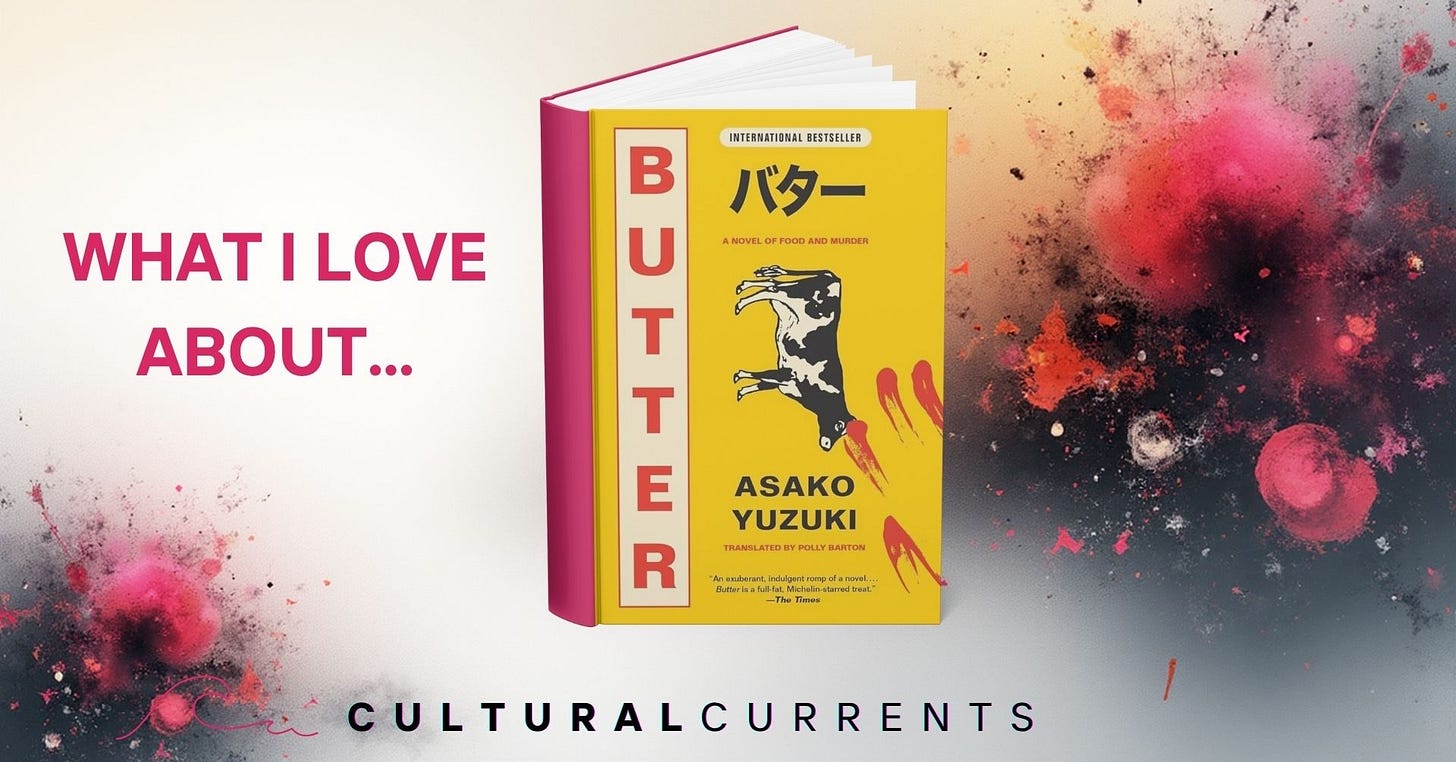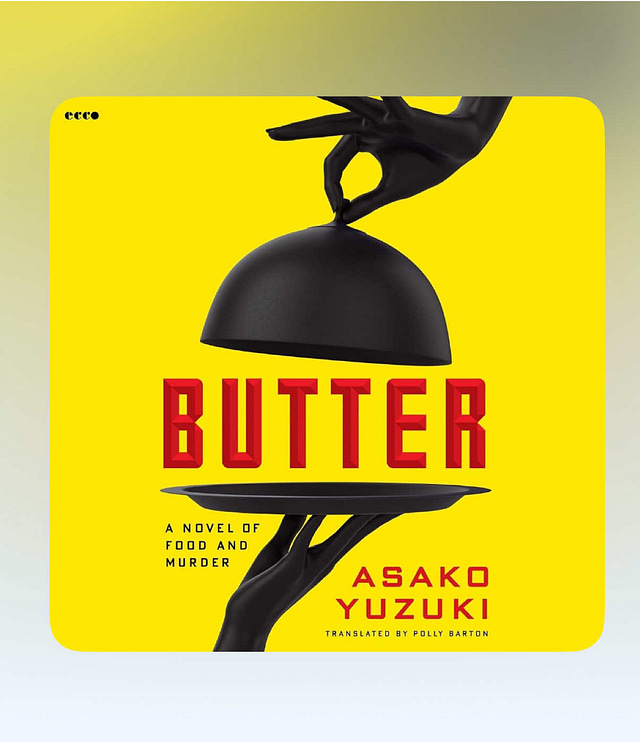Butter by Asako Yuzuki
A book you can taste and feel.
I listened to this book, translated from its cult-classic status in Japan, but I almost wish I’d read it on the page so I could savor every word. The audio tripped me up a bit with the names—probably my own processing—but I suspect the written version might make the immersion even richer.
The food writing in this novel is otherworldly. At one point, I did exactly what the main character, Rika, does: I made warm rice, topped it with cold, expensive butter, and let it melt at the back of my tongue. The book’s sensory descriptions are decadent, transporting—this passage in particular wrecked me (in the best way):
“The first thing Rika felt was a strange breeze emanating from the back of her throat. The cold butter first met the roof of her mouth with a chilly sensation, contrasting with the steaming rice in both texture and temperature. The cool butter clashed against her teeth, and she felt its soft texture right down into their roots. Soon enough, just as Kaiji had said, the melted butter began to surge through the individual grains of rice. It was a taste that could only be described as golden. A shining golden wave, with an astounding depth of flavor and a faint yet full and rounded aroma, wrapped itself around the rice and washed Rika’s body far away. It was, indeed, a lot like falling. Rika stared down intently at the bowl of rice with butter and soy sauce and let out a long sigh, feeling her breath rich and milky.”
I still dream of that taste introduced to me by a fictional character.
The story uses food as an unlikely bridge. Rika, a journalist who can’t cook, tries to break the ice with Kaiji, an incarcerated gourmet chef and convicted serial killer who used food both as seduction and weaponry, targeting lonely businessmen. Rika wants to know if Kaiji is truly guilty. In the process—and in her friendship with a troubled woman tied to the case—Rika’s ideas about womanhood, beauty, desire, and her own place in society begin to unravel.
What’s framed as a murder mystery is, at its heart, a study of how women navigate their bodies, their appetites, and the pressures placed on them. By the end, Rika’s entire self-concept has been cracked open.
Needless to say, I loved this book. It was adapted into a TV series in Japan, but it deserves an English-language adaptation immediately. At least, I really hope it gets one.




